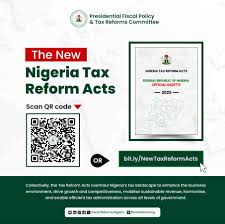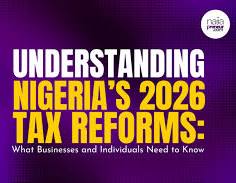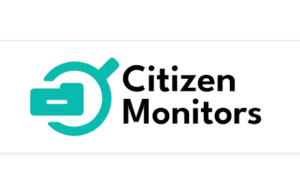
CSO Urges FG to Give Clarity on New Tax Law
- Business
- 22.09.2025
- No Comment
- 79
Citizen Monitors, a leading civil-society organisation in Nigeria, has urged the Federal Government to provide clear and practical information about the new tax law set to take effect on January 1, 2026. The organisation stressed that transparency and public understanding are vital to ensure the smooth rollout of the reforms and to protect citizens from confusion or exploitation.
The new tax framework consolidates multiple legislations including the Nigeria Tax Act, the Nigeria Tax Administration Act, and the Nigeria Revenue Service Act. This ambitious reform has already sparked nationwide debates, especially concerning the proposed 5% fossil-fuel surcharge that many fear will increase costs for households and businesses.
The Federal Government says the new tax system aims to modernize Nigeria’s revenue collection, improve efficiency, and strengthen compliance. However, critics warn that poor communication has left citizens confused about the details, creating an environment ripe for misinformation and panic.

The Federal Inland Revenue Service (FIRS) has also had to counter false reports claiming that Nigerians will be required to provide a Tax Identification Number (TIN) to operate or maintain bank accounts. FIRS clarified that there is “no need for a https://kpmg.com
Citizen Monitors Welcomes Pause on Fossil-Fuel Surcharge
In a statement signed by its spokesperson, Olajumoke Alawode-James, Citizen Monitors welcomed the government’s decision to pause the proposed 5% fossil-fuel surcharge pending further consultations with stakeholders.

While acknowledging the need for tax reform, the group stressed that reform is only meaningful when people understand it and can plan ahead. Without clarity, misinformation spreads and public trust erodes.
Citizen Monitors outlined three immediate priorities for the Federal Government to address before the new rules take effect in January 2026:
1. Publish a Plain-English Guide
The government should produce a one-page guide explaining:
- What is changing under the new tax law
- What remains the same
- A clear timeline to January 2026
- FAQs for common jobs, small businesses, and self-employed workers
- Details of a public helpline or online portal for quick answers
This would reduce the “weekly trickle of rumours” and enable Nigerians to make informed financial and business decisions.
2. Clarify VAT Rules and Protect Consumers
Citizen Monitors urged the government to continue reminding the public that Value Added Tax (VAT) remains at 7.5%. It also called for stricter enforcement of zero-rated essentials—such as food, books, medicines, and energy items—ensuring they remain exempt in stores and markets.

Regulators should actively monitor retail prices to stop merchants from falsely claiming VAT increases at checkout.
3. Publish Updated PAYE Tables and Support SMEs
The group emphasized the need to publish updated Pay-As-You-Earn (PAYE) tax tables early. It also recommended giving small and medium-sized enterprises (SMEs) an easy onboarding process into the new e-invoicing and fiscalisation system, with no retroactive penalties during the transition.
According to Citizen Monitors, clear steps and free toolkits will improve compliance and reduce fear among businesses.
Public Engagement and Awareness Campaign
Citizen Monitors called for a nationwide awareness campaign to educate Nigerians about the new tax rules. This campaign should utilize radio, television, print media, and social media to reach urban and rural populations alike.
The organisation also recommended that the government partner with civil society groups, trade associations, and local community leaders to counter misinformation at the grassroots level.
Citizen Monitors’ Role Moving Forward
The organisation reaffirmed its mission to track government policies and their impact on ordinary Nigerians. It pledged to monitor the rollout of the new tax law and provide regular updates on its real-life effects.
“As rollout begins, Citizen Monitors will track and report the real-life impact of the changes, helping Nigerians see what is working and where more clarity or correction is needed,” the group said.
The new tax law will affect a wide range of stakeholders, including:
- Individual taxpayers
- Small and medium-sized enterprises (SMEs)
- Large corporations and multinationals
- Financial institutions and banks
Experts warn that without clear guidance, these groups may struggle to comply with the new rules, leading to penalties and loss of trust. Early clarity and support can transform this reform into a success story.
As Nigeria prepares to implement the new tax law on January 1, 2026, Citizen Monitors’ call for greater transparency highlights a critical gap in the government’s reform strategy. While tax reforms are necessary to boost revenue and modernize the economy, they must be introduced in a way that is fair, predictable, and understandable for all Nigerians.
If the government follows Citizen Monitors’ recommendations—publishing a plain-English guide, clarifying VAT rules, and assisting SMEs—it can turn a source of public anxiety into an example of transparent, people-centered governance.
FAQs
What is the new tax law in Nigeria about?
The new tax law consolidates several legislations, including the Nigeria Tax Act, the Nigeria Tax Administration Act, and the Nigeria Revenue Service Act. It takes effect on January 1, 2026, aiming to modernize tax administration and improve compliance. See More
Will I need a Tax Identification Number (TIN) to open a bank account under the new law?
No. The Federal Inland Revenue Service (FIRS) has clarified that Nigerians will not need a separate TIN to operate or maintain bank accounts. See More
Is VAT increasing under the new tax law?
No. VAT remains at 7.5%. Zero-rated essentials like food, books, medicines, and some energy items will still be exempt. See More
How will SMEs be affected by the new tax law?
SMEs will be required to onboard into the new e-invoicing and fiscalisation system. The government is urged to provide clear steps and toolkits to ease this transition. See More
When does the new tax law come into effect?
The new tax law officially takes effect on January 1, 2026. See More





